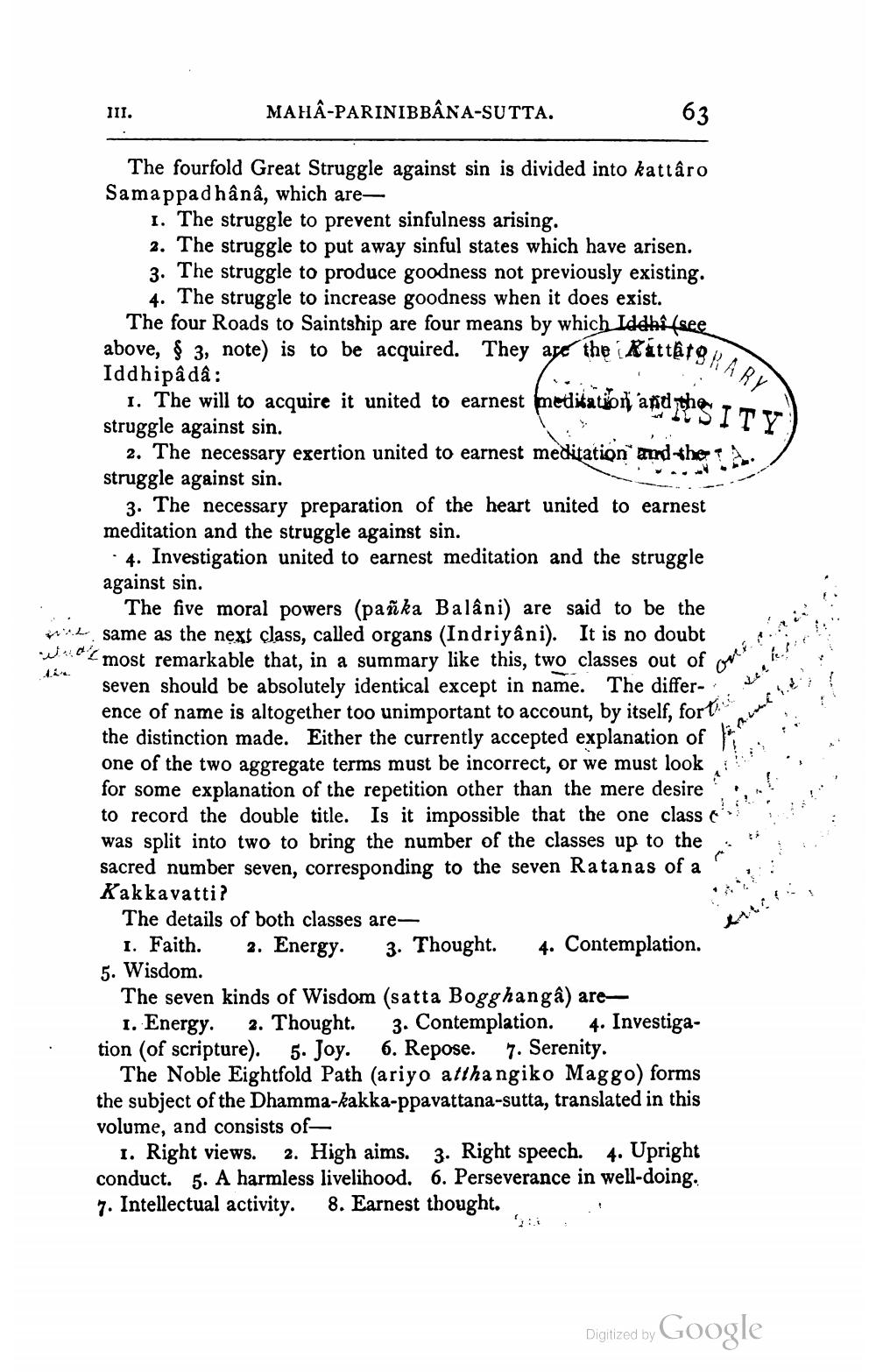________________
www
tin
MAHA-PARINIBBANA-SUTTA.
63
The fourfold Great Struggle against sin is divided into kattâro Samappad hânâ, which are—
1. The struggle to prevent sinfulness arising.
2. The struggle to put away sinful states which have arisen.
3. The struggle to produce goodness not previously existing. 4. The struggle to increase goodness when it does exist. The four Roads to Saintship are four means by which Iddhî (see
above, § 3, note) is to be acquired. They are the KattaRARY
III.
Iddhipâdâ:
1. The will to acquire it united to earnest meditation and the ITY
struggle against sin.
2. The necessary exertion united to earnest meditation and the struggle against sin.
3. The necessary preparation of the heart united to earnest meditation and the struggle against sin.
4. Investigation united to earnest meditation and the struggle against sin.
The five moral powers (pañka Balâni) are said to be the same as the next class, called organs (Indriyâni). It is no doubt most remarkable that, in a summary like this, two classes out of seven should be absolutely identical except in name. The difference of name is altogether too unimportant to account, by itself, fort the distinction made. Either the currently accepted explanation of one of the two aggregate terms must be incorrect, or we must look for some explanation of the repetition other than the mere desire to record the double title. Is it impossible that the one class was split into two to bring the number of the classes up to the sacred number seven, corresponding to the seven Ratanas of a Kakkavatti?
The details of both classes areI. Faith. 2. Energy.
5. Wisdom.
3. Thought. 4. Contemplation.
The seven kinds of Wisdom (satta Bogghangâ) are1. Energy. 2. Thought. tion (of scripture). 5. Joy. The Noble Eightfold Path (ariyo atthangiko Maggo) forms the subject of the Dhamma-kakka-ppavattana-sutta, translated in this volume, and consists of
3. Contemplation. 4. Investiga6. Repose. 7. Serenity.
1. Right views. 2. High aims. 3. Right speech. 4. Upright conduct. 5. A harmless livelihood. 6. Perseverance in well-doing. 7. Intellectual activity. 8. Earnest thought.
2:3
Digitized by
Mai
ht
one.
paulre
athes
Monc
Google




